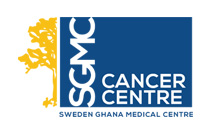Risk Factors
Research indicates that your genes and the environment you live in are crucial in the development of breast cancer. Breast cancer risk factors include:
Race: Women of African descent are more likely to develop triple negative breast cancer, an aggressive form of breast cancer that spreads quickly and does not respond to hormone therapy and other conventional therapies.
Gender: Compared to males, females have a significantly higher incidence of breast cancer.
Age: As you age, your risk of breast cancer increases.
Personal history: Your risk of developing breast cancer increases if you’ve already had breast cancer in one breast, or if your breast biopsies have identified lobular carcinoma in situ (LCIS) or atypical hyperplasia in the breast.
Family history: While the majority of the people diagnosed with breast cancer have no family history of the disease; having family members who have been diagnosed, particularly at a young age, increases one’s risk for breast cancer.
Inherited genes: Genetic susceptibility to cancer can develop when certain gene mutations, such as BRCA1 and BRCA2, are passed down from generation to generation.
Radiation exposure: Exposure to radiation as a child or young adult increases one’s risk for breast cancer.
Onset of period at a young age, onset of menopause at an old age, or birthing your first child at an older age: Beginning your menstrual cycle before age 12 or menopause at an older age increases one’s risk for breast cancer. Having your first child after age 30 increases one’s risk as well.
Lifestyle: Smoking, obesity and excessive alcohol consumption increases one’s risk for breast cancer.
Prevention
Certain factors such as race, gender, age, personal and family history, and inherited genes cannot be changed but you can reduce your risk for breast cancer by:
Familiarize yourself with your breasts through self exams: Occasionally inspect your breasts and remain vigilant for changes in its appearance in the form of lumps or discoloration. If any changes occur, inform your doctor immediately. This breast self-examination is recommended monthly usually, a week after one’s period.
Maintain a healthy weight: You should work to maintain a healthy weight by incorporating exercise into your lifestyle and reducing the number of calories you consume each day. Being obese puts you at risk for breast cancer and other forms of cancer. Speak to your doctor about what a healthy weight is for you.
Exercise and stick to a healthy diet: Try to exercise for about 30 minutes at least 5 times a week. If you are currently inactive, speak to your doctor about taking steps to become more mobile and adapt to an active lifestyle.
Quit smoking and reduce alcohol intake: Quitting smoking lowers your risk of getting breast and many other forms of cancer. In addition, alcohol should be consumed in moderation.
